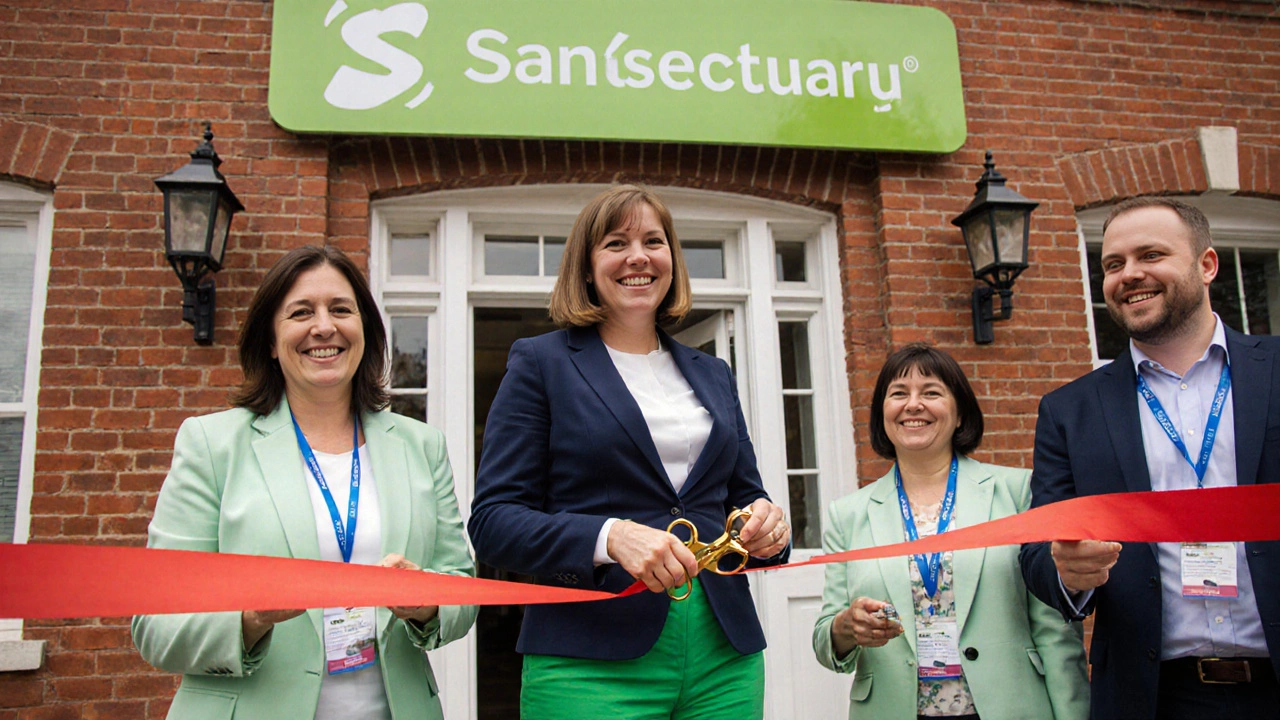When Chris Boardman MBE, Chair of Sport England announced on 12 November 2020 that the sport sector must undergo a "mindset shift" on climate change, the message rang louder than a stadium horn. The call came in a briefing from the London‑based body, which commands an annual budget of more than £300 million to nurture sport and physical activity across England. Boardman, a former Olympic champion and ex‑Cycling and Walking Commissioner for Greater Manchester, argued that sport’s cultural pull can "win hearts and minds" for the planet.
Why the Sports World Matters for the Planet
The logic is simple: sport generates billions of pounds of social value each year. Sport England’s own research for the 2022‑23 financial year put that figure at £107.2 billion, with £96.7 billion tied directly to individual wellbeing and the remaining £10.5 billion flowing into broader societal benefits. Those numbers aren’t just accounting fluff; they translate into community centres, school programmes, and local clubs that shape daily habits for millions.
In practice, the sector’s reach is massive. Over 4,500 community clubs and 1,000 delivery partners already act as neighbourhood hubs. If each of those nodes embeds sustainability – from low‑carbon facility upgrades to carbon‑aware event planning – the ripple effect could dwarf traditional environmental campaigns.
Sport England’s Climate Action Blueprint
The initiative, formally titled Sport England Climate Action PlanLondon, lays out four core pillars:
- Achieve net‑zero carbon emissions across all Sport England operations by 2030.
- Cut carbon intensity of funded facility projects by 50 % relative to 2019 baselines, with a target date of 31 December 2025.
- Ensure every organisation that receives grant funding drafts and publishes a climate‑action plan by the end of 2025.
- Embed climate‑education modules into community programmes, leveraging sport’s “togetherness” psychology.
Boardman highlighted that the plan builds on the earlier "Tackling our Climate Crisis" report, which set out concrete metrics and a roadmap for the sector. The report also flagged the sector’s carbon hotspots – energy‑intensive indoor arenas and travel‑heavy tournament circuits – as priority targets for innovation.
Linking Physical Activity to Mental Health and Climate
Sport England has never been a single‑issue agency. Its "No Mind Left Behind" campaign, launched on World Mental Health Day, reminded the nation that two million people were still stuck on NHS mental‑health waiting lists as of October 2023. By weaving physical activity into the mental‑health narrative, the body argues that a healthier, more active populace can ease pressure on overstretched services.
During Mental Health Awareness Week, the "Let's Move More for Our Mental Health" partnership with the Mental Health Foundation quoted Nelson Mandela’s prison‑era observation that exercise is "key not only to physical health but to peace of mind too." The climate plan mirrors that logic: climate‑friendly sport spaces become venues for both environmental education and mental‑wellness support.
Academic Backing: The Power of Togetherness
Frontiers for Young Minds published a study showing that a team's sense of "togetherness" – not the star quality of individual athletes – drives collective performance. The research introduced the "3Rs" (Respect, Responsibility, Resilience) as a behavioral toolkit for cultivating that bond. Sport England is adopting the 3Rs as part of its climate‑education curriculum, believing that groups who feel united are more likely to champion sustainable habits beyond the training field.
Reactions from the Field
Local club leaders have mostly welcomed the push. Emma Clarke, Director of Leeds Community Sports Hub told us, "We already track energy use, but now we have a clear deadline and a framework to speak to our members about why it matters." Conversely, a few facility managers expressed concern over financing retrofits. "The upfront cost is steep," admitted Mark Hughes, Facilities Manager at a mid‑size leisure centre in Birmingham. "We’ll need more grant support to hit those 50 % cuts."
Beyond the environmental upside, the plan promises financial upside. A 2022 analysis by the University of Leeds estimated that every £1 million spent on low‑carbon upgrades could generate up to £2.5 million in long‑term savings via reduced energy bills and lower maintenance costs. For a sector that handles a £300 million annual budget, the numbers add up quickly.
Sport England will roll out a monitoring dashboard by spring 2024, allowing clubs to log emissions data in real time. The organization also announced a £15 million “green‑sport” grant stream, earmarked for projects that combine community outreach with carbon‑reduction tech – think solar‑powered floodlights or bike‑share schemes tied to local leagues.
Boardman concluded his briefing with a challenge: "If we can get a million people to swap a car ride for a bike to the local match, we’ve already made a dent in the climate crisis. The real win is changing the story we tell ourselves about sport – that it’s not just about medals, but about sustaining the planet for the next generation of players."
Clubs will receive guidance on measuring their carbon footprints and access to a £15 million grant pool for low‑carbon upgrades. By 2025, every funded club must publish its own climate‑action plan, creating a clear roadmap for sustainable practices. The plan aims to slash carbon emissions from facility investments by 50 % compared with 2019 levels and to ensure 100 % of organisations receiving Sport England funding have a documented climate‑action strategy by 31 December 2025. Research shows physical activity boosts mental wellbeing, while climate‑focused community projects foster a sense of purpose. By entwining the two, Sport England hopes to address NHS waiting‑list pressures and encourage collective action on environmental issues. The upgrades will draw from Sport England’s central budget, the new green‑sport grant, and co‑funding from local authorities. Additional private‑sector partnerships are being explored to stretch the £15 million grant further. Residents are encouraged to participate in carbon‑tracking workshops, volunteer for green‑infrastructure projects, and shift travel habits—like cycling to games. The "togetherness" approach relies on grassroots enthusiasm to turn policy into everyday practice.
Economic Implications
What Comes Next?
Key Facts
Frequently Asked Questions
How will the climate plan affect local sports clubs?
What specific targets are set for 2025?
Why link mental health initiatives to climate action?
Who is funding the low‑carbon upgrades?
What role do community members play in the plan?
